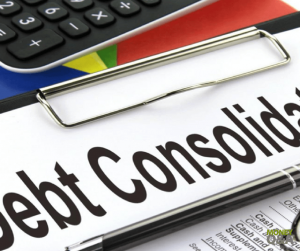
Is there a ‘best’ way to tackle your debts?
However, there are various strategies to tackle your debts. Some of which are better than others. Here is a run down of tactics that you might consider, alone or together, in order:
Know your debt
If you don’t understand the problem, then how can you tackle it? The first stage of taking back control is to find out more about your debts. Ask your creditor for the latest statement showing how much you owe and your current agreement. Then look at your bank statements and work out what you are paying and when. It’s sometimes easier when in debt to shy away from statements but to address the problem, you need to know the extent of it.
Prioritize payments
If you’re struggling with debts and you can’t make your money stretch as far as it needs to, you need to order your debts and look at priorities. For example, not paying your rent could leave you homeless but paying your phone bill late may leave to your service being cut off.
It is not recommended you miss any payments but some payments have more drastic consequences if not kept up to date. You should look through your statements and work out what’s the most important and how you can make sure those bills are paid. A debt snowball can help you prioritize your debt repayments.
Make cutbacks
Analyze your accounts and look at areas you could make potential cutbacks. Could you cancel subscription services, could you renegotiate a phone contract or could you switch a supplier to get a cheaper deal? Spending a little time looking through your accounts could save you a lot of money.
Pay off more than the minimum
A scary thought: if you take out a debt of £5,000 in your twenties and pay off the minimum amount per month, you would still be paying it back into your fifties – with a hefty dollop of interest along the way.
However, just a few additional pounds each month could snip this by years or even decades. Borrowers are essentially competing against an interest rate. It’s why some people like overpaying their mortgages. Make sure you are paying more than the minimum.
Consolidation
Merging all of your debts into one account might not necessarily lower your costs, but what debt consolidation will do is concentrate all of your money in one place so you do not fall foul of late or missed payments. The more dates that you have to remember and organize, the higher the likelihood of one slipping through the net and picking up a charge. However, ensure you go through your calculations to ensure that you’re not paying too much more than you’re paying now.
Set up a debt management plan
This is essentially an informal agreement where you agree to pay back the full amount of what you owe, but in a schedule that is comfortable to you. It could be agreed through a debt management company or creditors themselves, splitting the money per month to ensure all creditors are paid back at an appropriate rate.
Consider an IVA
If you’ve reached the point of being at your wits’ end and have debts of around £7,000 or more, then it may be time to consider an IVA (Individual Voluntary Agreement). An IVA is a formal agreement between you and your creditors where you agree to pay off a monthly agreed upon, affordable amount that constitutes a percentage of your debt.
In that way, you may be able to write off some of the debt and avoid bankruptcy. But, there are also disadvantages. It’s a legally binding agreement. So, you must make payments. However, the fact that you’ve regained control of your finances can easily offset this problem.
What about you? Is there one best way to tackle your debts? Should you use the debt snowball method? Should you consolidate your debts first? I’d love to hear what has worked for you.
